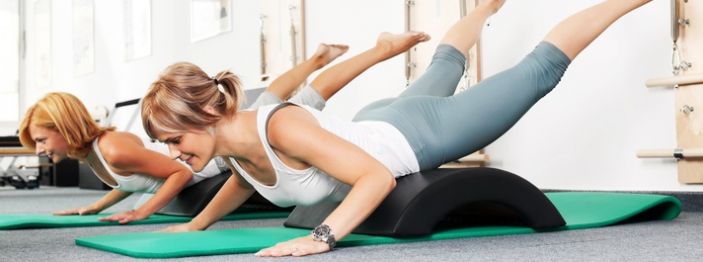The benefits of Pilates for multiple sclerosis
A new study has reported that Pilates can help to alleviate pain and improve disability when practised regularly (Byrnes and colleagues. J Bodyw Mov Ther 2018;22:192-202).
The researchers looked at the combined results of 23 scientific studies published between 2005 and 2016 that examined the benefits of Pilates for a range of medical conditions, including multiple sclerosis. For example, a small study found that Pilates improved balance, tiredness, quality of life and cognition (thinking, memory and planning) among people with MS participating in Pilates (Kucuk and colleagues. J Phys Ther Sci 2016;28:761-768).
Three more recent studies have also come out in favour of Pilates. The first study compared Pilates with aerobic exercise (Kara and colleagues. J Back Musculoskelet Rehabil 2017;30:565-573). Both forms of exercise improved physical performance and balance. Pilates was somewhat better than aerobics for improving cognition.
A separate study compared Pilates with conventional physical therapy in people with MS living with moderate disability (Kalron and colleagues. Clin Rehabil 2017;31:319-328). Both groups showed improvements in balance and walking ability, with Pilates showing a slight advantage in walking speed.
Pilates was developed by Joseph Pilates as a system for physical fitness a century ago, when Pilates, a German citizen, was interned during World War I. The system uses controlled movements to build core strength (the muscles in your abdomen, hips and lower back), and emphasizes physical control, precision, flow, concentration and breathing. Exercises can be performed on a mat, or with different types of apparatus (one of which Pilates called the Reformer).
The third study compared Pilates using a mat or with the Reformer (Bulgurogh and colleagues. NeuroRehabilitation 2017;41:413-422). People with MS performed mat or Reformer Pilates twice a week for eight weeks. A control group limited themselves to breathing and relaxation exercises at home. After two months, both of the Pilates groups showed improvements in balance, mobility, and stability of their core. They also reported less severe fatigue and better quality of life. The use of an apparatus didn’t appear to provide any additional benefits over the mat exercises. No improvements were seen in the control group.
These studies indicate that Pilates can be a helpful form of exercise for people with MS. It doesn’t require any special (and expensive) equipment, and can be done in your own home if you don’t feel like signing up for a Pilates class in your neighbourhood.
Share this article
Facebook Twitter pin it! Email
Back
